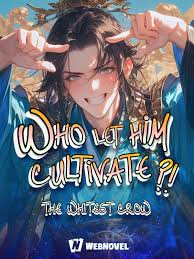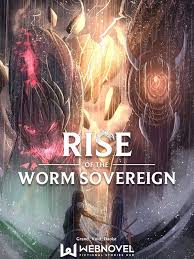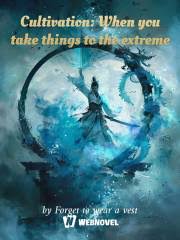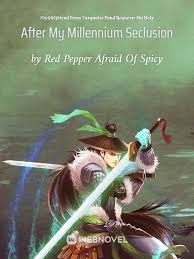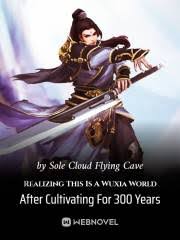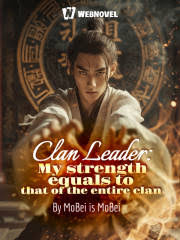The Story in 3 Sentences
Lu Yang, an ordinary young man with an unorthodox mindset, stumbles into the rigid and often absurd world of xianxia cultivation, where his chaotic logic and comedic misunderstandings upend centuries of tradition.
His arrival at the Seek Dao Sect—a place already infamous for its eccentric disciples—ignites a chain reaction of hilarious misadventures, mistaken identities, and accidental heroics that ripple across the entire cultivation world.
As Lu Yang navigates tribulations, immortals, and ancient conspiracies with nothing but wit and sheer luck, he inadvertently reshapes the very foundations of immortality, proving that sometimes the greatest power is not in strength, but in absurdity.
Why It Stands Out
1. Comedy as a Weapon Against Cliché
Who Let Him Cultivate?! doesn’t just parody xianxia tropes—it dismantles them with surgical precision wrapped in slapstick. While most cultivation stories lean into grim determination or tragic backstories, this novel weaponizes humor to expose the inherent ridiculousness of rigid hierarchies, blind reverence for elders, and the obsession with “face.” Lu Yang’s solutions to world-shaking crises often involve bribes, miscommunication, or invoking the “power of Big Senior Sister,” turning epic confrontations into farcical theater that leaves both characters and readers disarmed .
2. A Cultivation World That Feels Alive
Unlike many webnovels where the setting is a static backdrop, the world of Who Let Him Cultivate?! evolves with its own internal logic, history, and social quirks. Cultivation isn’t just about power levels—it’s entangled with economics, politics, and even wedding customs involving dragons and phoenixes . The novel builds a universe where immortals argue over inheritance, sects compete for reputation, and ancient artifacts are treated with equal parts awe and bureaucratic frustration, making the absurdity feel grounded in a lived-in reality .
3. Intelligence Disguised as Chaos
Beneath the surface-level antics lies a sharp narrative intelligence. Lu Yang’s “random” actions often reveal deeper critiques of dogma and blind tradition. His famous line—“I stress repeatedly, the attitude of the Cultivation World is inherently distorted, not because I distorted it”—isn’t just a punchline; it’s a thesis statement . The story rewards attentive readers with layered jokes, callbacks, and subtle commentary on how systems perpetuate their own absurdities, all while maintaining a breezy, accessible tone that never feels preachy .
Characters That Leave a Mark
There’s Meng Jingzhou – a scion of a powerful cultivation family whose dry wit and encyclopedic knowledge of sect politics make him the perfect straight man to Lu Yang’s chaos; he wields golden palm imprints and the “power of money” with equal flair, often saving the day through sheer resourcefulness .
You’ll meet Yingtian Immortal, who carries the weight of cosmic responsibility with a fading smile; his transformation from a revered figure to a tragic pawn in a larger scheme adds emotional gravity to the story’s comedic core, especially in the late chapters where his true role is revealed .
And Jiuchong Immortal? They’re the one who bridges ancient legacy and present turmoil, granting inheritors the secrets of the Yin-Yang Dao Fruit and shaping the fate of generations; their presence looms large even in absence, embodying the quiet, enduring influence of the old guard in a world rapidly unraveling .
The Flaws Fans Debate
Some readers argue the episodic structure sacrifices long-term narrative tension, as the focus on self-contained comedic arcs can make overarching stakes feel diluted.
The reliance on Lu Yang’s “unconventional mind” occasionally borders on deus ex machina, where problems resolve too neatly through absurdity rather than earned progression.
A segment of the fanbase notes that while the parody is sharp early on, later chapters lean more into conventional cultivation escalation, slightly blurring the satirical edge that made the novel stand out initially.
Must-Experience Arcs
Ch. 1–150: Seek Dao Sect Shenanigans – Lu Yang’s chaotic induction into the sect, where he mistakes cultivation manuals for cookbooks, accidentally becomes a sect legend, and redefines what it means to “seek the Dao” through sheer misunderstanding.
Ch. 500–650: The Four Immortals Conspiracy – A mid-series pivot where hidden agendas surface among the immortal elite; Lu Yang stumbles into a web of karmic backlash, time loops, and resurrected corpses, forcing even the most detached immortals to confront their past sins.
Ch. 1300–1364: The Final Tribulation – The climax where Lu Yang’s sword cleaves the Heavenly Tribulation itself, not through brute force but by exposing the hypocrisy of the system; the entire cultivation world watches in horror as the rules they worshipped are rewritten by a man who never took them seriously .
Killer Quotes
“I stress repeatedly, the attitude of the Cultivation World is inherently distorted, not because I distorted it.”
“History is written by the victors, and I’ve triumphed!”
“The power of Big Senior Sister!”
Cultural Impact
The phrase “Who let him cultivate?!” became a viral meme across xianxia forums, used whenever a character breaks genre norms or achieves the impossible through sheer audacity.
Fans created countless reaction comics depicting Lu Yang summoning “Big Senior Sister” to solve real-world problems, from traffic jams to office politics.
The novel consistently ranked in Qidian’s Top 10 for over eight months, hailed as a rare English-accessible comedy that captures the spirit of Chinese webnovel satire without losing cultural nuance .
Final Verdict
Start Here If You Want:
A hilarious antidote to overly serious cultivation epics that still respects the genre’s roots.
A protagonist who wins through wit, luck, and shameless improvisation rather than trauma or bloodlines.
A world that feels both absurd and strangely coherent, where every joke has a purpose and every punchline reveals a truth.
Study If You Love:
Narrative subversion that uses comedy to critique institutional dogma and inherited power structures.
The evolution of xianxia as a genre, particularly how modern webnovels blend parody with genuine worldbuilding.
Character dynamics where eccentricity isn’t just comic relief but a form of resistance against conformity.
Avoid If You Prefer:
Gritty, high-stakes drama with constant life-or-death tension and morally gray choices.
Traditional cultivation progression where power is earned through suffering and discipline.
Stories that take themselves seriously from start to finish without room for meta-humor or genre deconstruction.
